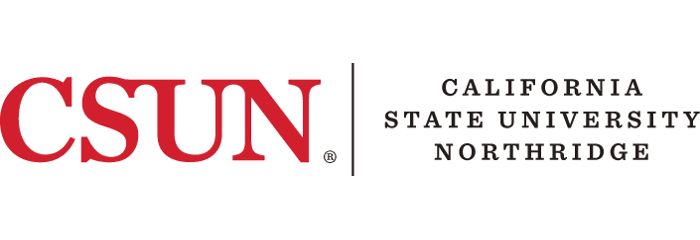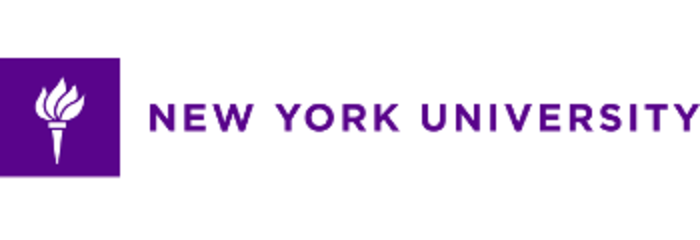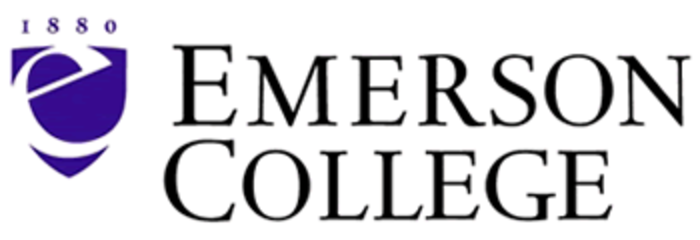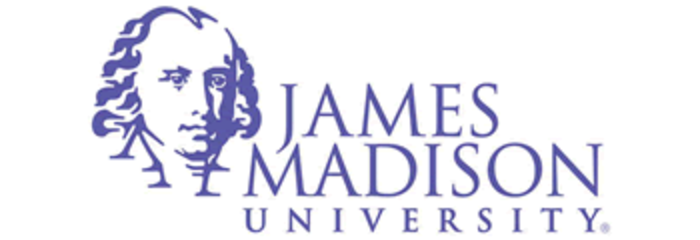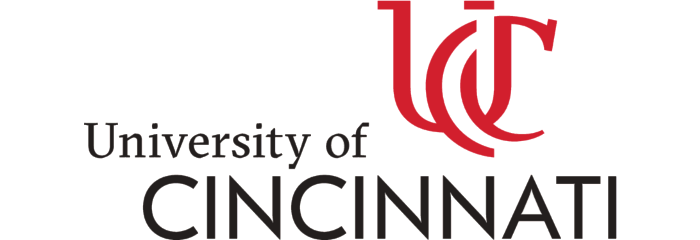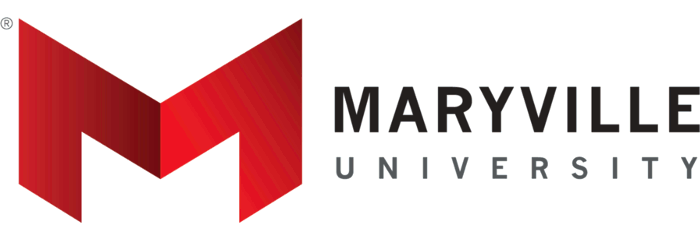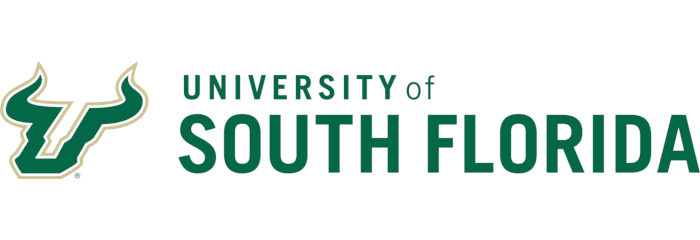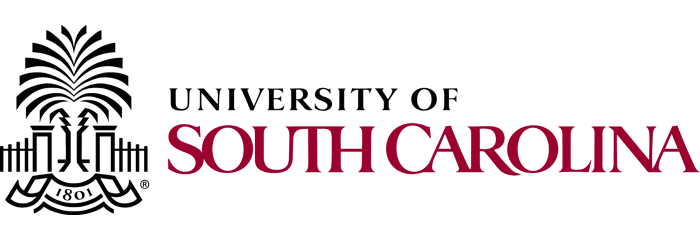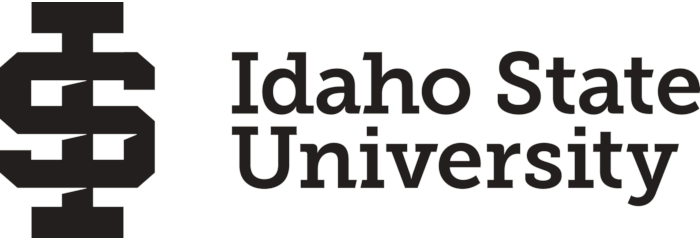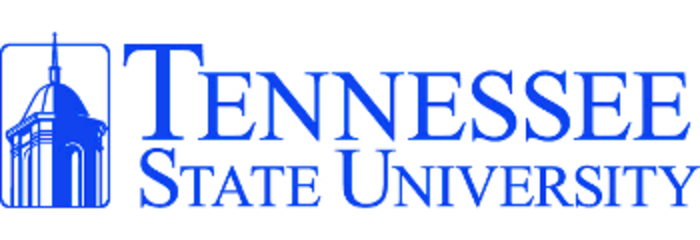2025 Best Speech and Language Pathology Online Master's Programs
Speech and language pathology online master's programs are designed to provide the skills and knowledge required for a successful career in the field. Coursework explores communication disorders, linguistics, and anatomy with hands-on clinical experiences. An SLP online master's program offers a credible pathway to certification and employment.
Key Takeaways:
- New York University offers an outstanding online Master of Science in Communicative Sciences and Disorders program, ranking #1 for its median earnings of $75,159, placing it in the top 9% nationwide.
- The University of Cincinnati stands out with an impressive online enrollment of 4,533 students studying remotely at the undergraduate level.
- James Madison University has the top recommendation rate on our list at 98%.
Our ranking methodology evaluates online program alumni outcomes to assess financial value, assigning a Salary Score with letter grades to compare nationwide salary results. Programs with top scores and high enrollment rank higher, reflecting earning potential and popularity.
2025 Best Speech and Language Pathology Online Master's Programs
| Rank | School | Salary Score | Median Earnings | Online Enrollment |
|---|---|---|---|---|
| New York University | $75,159 | 4,060 | ||
| Emerson College | A- | $71,457 | 845 | |
| James Madison University | B | $65,401 | 1,036 | |
| University of Cincinnati | N/A | $47,413 | 4,533 | |
| Maryville University | N/A | N/A | 3,561 | |
| University of South Florida Online | N/A | $59,531 | 3,214 | |
| University of South Carolina - Columbia | N/A | $60,643 | 2,426 | |
| Idaho State University | N/A | $60,582 | 901 | |
| University of Akron | N/A | $56,894 | 400 | |
| Tennessee State University | N/A | $53,270 | 377 |
2025 Best Speech and Language Pathology Online Master's Programs - Program Details
#1
- Salary Score: A
- Median Earnings: $75,159
- Online Enrollment: 4,060 enrolled
- Annual Tuition: $39,592
Online degree: Master of Science in Communicative Sciences and Disorders
Why we like them: NYU ranks #1, with graduates of the online master’s program in communicative sciences and disorders achieving a median salary of $75,159, placing it within the top 9% of institutions nationwide for earning potential. We also want to appreciate NYU's retention and graduate rates, as these are also the highest on our list at 95% and 87%, respectively. This online program, accredited by the American Speech-Language-Hearing Association's (ASHA) Council on Academic Accreditation (CAA), encompasses interactive research, clinical components, and field placements to gain hands-on experience with diverse communication disorders.
Key Metrics:
- Salary Score: A
- Median Earnings: $75,159
- Financial Aid Recipients: 53%
- Avg. Aid Package: $47,096
- Avg. Graduation Rate: 87%
- Retention Rate: 95%
- Recommend Rate: 95%
- School Type: Nonprofit (Private)
#2
- Salary Score: A-
- Median Earnings: $71,457
- Online Enrollment: 845 enrolled
- Annual Tuition: $33,052
Online degree: Master of Science in Communication Disorders
Why we like them: At Emerson, graduates of this program earn a median salary of $71,457, which positions it in the top 16% for graduate earnings in this field nationally. This degree spans a flexible 20 to 36-month completion track, offering both a five-term and a nine-term option. It's accredited by the CAA of the ASHA, preparing you for ASHA certification and state licensure, contingent on state requirements. The curriculum includes evidence-based practice and immersion experiences at Emerson’s Boston campus, alongside clinical placements tailored to ensure hands-on training. A total of 400 supervised clinical practice hours, including 25 in observation, are required.
Key Metrics:
- Salary Score: A-
- Median Earnings: $71,457
- Financial Aid Recipients: 83%
- Avg. Aid Package: $24,360
- Avg. Graduation Rate: 77%
- Retention Rate: 88%
- Recommend Rate: 81%
- School Type: Nonprofit (Private)
#3
- Salary Score: B
- Median Earnings: $65,401
- Online Enrollment: 1,036 enrolled
- Annual Tuition: $29,496
Online degree: Master of Science in Speech-Language Pathology
Why we like them: JMU secures a prominent position, bolstered significantly by its SLP graduates' median earnings of $65,401. We also want to mention JMU's 98% recommendation rate, the highest on our list. JMU's speech and language pathology online master's program ensures rigorous education through a small cohort model of 25-30 students. It is accredited by the Council for Academic Programs, aligning with health profession licensure requirements in Virginia. It permits up to three years for completion, without mandatory on-campus requirements. And it meets ASHA certification standards, including crucial practicum placements.
Key Metrics:
- Salary Score: B
- Median Earnings: $65,401
- Financial Aid Recipients: 58%
- Avg. Aid Package: $10,081
- Avg. Graduation Rate: 81%
- Retention Rate: 89%
- Recommend Rate: 98%
- School Type: Nonprofit (Public)
#4
- Salary Score: N/A
- Median Earnings: $47,413
- Online Enrollment: 4,533 enrolled
- Annual Tuition: $26,644
Online degree: Master of Arts in Speech-Language Pathology
Why we like them: UC's high online enrollment ranks it in the top 4% of institutions for virtual learning, reflecting strong support for distance learners. Its part-time, three-year online SLP master's includes an in-person clinical practicum starting in the third semester, transitioning to full-time for hands-on experience. Offered with UA, the program prepares students for licensure through courses in speech and language disorders, dysphagia, and accent modification. Accredited by the CAA in Audiology and Speech-Language Pathology, graduates are eligible for Ohio licensure and ASHA certification.
Key Metrics:
- Salary Score: N/A
- Median Earnings: $47,413
- Financial Aid Recipients: 84%
- Avg. Aid Package: $8,733
- Avg. Graduation Rate: 72%
- Retention Rate: 86%
- Recommend Rate: 86%
- School Type: Nonprofit (Public)
#5
- Salary Score: N/A
- Median Earnings: N/A
- Online Enrollment: 3,561 enrolled
- Annual Tuition: $15,696
Online degree: Master of Science in Speech Language Pathology
Why we like them: Maryville's online Master of Science in Speech Language Pathology is a comprehensive, 57-credit program conducted over five semesters. Notably accredited by ASHA and the Council on Academic Accreditation, it ensures a high standard of education. The curriculum provides rigorous online learning supplemented by required in-person clinical practicum experiences, conveniently located within a 60-mile radius of students' residences. We also like that the program emphasizes both adult and pediatric telepractice clinical experiences in its initial semesters, transitioning to traditional practicums in later stages.
Key Metrics:
- Salary Score: N/A
- Median Earnings: N/A
- Financial Aid Recipients: 99%
- Avg. Aid Package: $17,914
- Avg. Graduation Rate: 67%
- Retention Rate: 83%
- Recommend Rate: 49%
- School Type: Nonprofit (Private)
#6
- Salary Score: N/A
- Median Earnings: $59,531
- Online Enrollment: 3,214 enrolled
- Annual Tuition: $21,126
Online degree: Master of Science in Speech-Language Pathology
Why we like them: With an online enrollment that places it among the top 7% of graduate schools, USF clearly demonstrates its outstanding ability to attract and accommodate online learners. Coupled with a retention rate of 90%, placing it within the top 8%, it's clear that once enrolled, students are motivated to continue their education with USF. The online master's program in speech-language pathology is fully accredited by the Council on Academic Accreditation in Audiology and Speech-Language Pathology. It's designed with multiple tracks, including a full-time six-semester curriculum offering diverse clinical experiences across campus and external sites.
Key Metrics:
- Salary Score: N/A
- Median Earnings: $59,531
- Financial Aid Recipients: 90%
- Avg. Aid Package: $11,066
- Avg. Graduation Rate: 74%
- Retention Rate: 90%
- Recommend Rate: 93%
- School Type: Nonprofit (Public)
#7
- Salary Score: N/A
- Median Earnings: $60,643
- Online Enrollment: 2,426 enrolled
- Annual Tuition: $30,160
Online degree: Master of Science in Speech-Language Pathology
Why we like them: USC-Columbia excels in providing a well-rounded educational experience reflected in its impressive online enrollment of 2,426 students, surpassing the majority of institutions and placing it among the top 12% for popularity. Its SLP online master's program prepares you to work as a speech-language pathologist across various settings, including schools, hospitals, and private practices. The part-time, distance education option caters to those with job or family commitments, providing flexibility while you study. Students engage with diverse communication disorders, ranging from speech and language challenges to voice and swallowing difficulties.
Key Metrics:
- Salary Score: N/A
- Median Earnings: $60,643
- Financial Aid Recipients: 98%
- Avg. Aid Package: $6,880
- Avg. Graduation Rate: 78%
- Retention Rate: 90%
- Recommend Rate: 89%
- School Type: Nonprofit (Public)
#8
- Salary Score: N/A
- Median Earnings: $60,582
- Online Enrollment: 901 enrolled
- Annual Tuition: $28,608
Online degree: Master of Science in Speech-Language Pathology
Why we like them: At ISU, the recommendation rate stands at 86%, showcasing a high level of satisfaction among its graduates. The online master's in speech-language pathology at ISU is a 36-month program, accredited by ASHA. Uniquely, it offers a flexible structure where students complete academic coursework asynchronously, with practical experiences conducted in their local communities. The engagement includes two courses per semester initially, followed by integrated clinical practicum experiences. To ensure comprehensive preparation, the program concludes with an eight-week full-time externship.
Key Metrics:
- Salary Score: N/A
- Median Earnings: $60,582
- Financial Aid Recipients: 99%
- Avg. Aid Package: $9,145
- Avg. Graduation Rate: 36%
- Retention Rate: 71%
- Recommend Rate: 86%
- School Type: Nonprofit (Public)
#9
- Salary Score: N/A
- Median Earnings: $56,894
- Online Enrollment: 400 enrolled
- Annual Tuition: $14,573
Online degree: Master of Arts in Speech-Language Pathology
Why we like them: UA distinguishes itself as a leader in online higher education, boasting an outstanding 87% recommendation rate. This glowing recommendation underscores the satisfaction and value recognized by its graduates. UA hosts this speech and language pathology online master's degree, which embraces a collaborative approach, ensuring students nationwide receive equal access to quality education. Accredited and recognized for value, the program enhances skills necessary in the field, preparing graduates for diverse career opportunities.
Key Metrics:
- Salary Score: N/A
- Median Earnings: $56,894
- Financial Aid Recipients: 98%
- Avg. Aid Package: $8,525
- Avg. Graduation Rate: 45%
- Retention Rate: 68%
- Recommend Rate: 87%
- School Type: Nonprofit (Public)
#10
- Salary Score: N/A
- Median Earnings: $53,270
- Online Enrollment: 377 enrolled
- Annual Tuition: $22,836
Online degree: Master of Science in Speech and Hearing Sciences
Why we like them: TSU not only has a commendable recommendation rate of 82%, signaling strong satisfaction among online learners, but it hosts an online Master of Science in Speech and Hearing Sciences. This 53 credit-hour program is designed to prepare students for careers in speech pathology by having students follow a structured course sequence beginning each spring in odd-numbered years. The curriculum spans a variety of critical topics, including language development, anatomy and physiology, neuroanatomy, language disorders, aphasia, and multicultural literacy. It also incorporates practicum experiences.
Key Metrics:
- Salary Score: N/A
- Median Earnings: $53,270
- Financial Aid Recipients: 98%
- Avg. Aid Package: $17,315
- Avg. Graduation Rate: 32%
- Retention Rate: 62%
- Recommend Rate: 82%
- School Type: Nonprofit (Public)
Overview of Online Master's in Speech-Language Pathology Degrees
Speech-language pathologists work with both children and adults to resolve many types of communication disorders. Those who aspire to become speech professionals will need to earn a master's degree in the field, which they can accomplish through on-campus or online grad school for speech pathology.
Most colleges that offer master's degrees for speech pathology online require completing 61-64 credit hours, which typically includes about 18 credit hours of clinical practice courses. Some online SLP master's programs are designed to be completed in one and a half years of full-time study, while others cater to working adults and are meant to be completed in two to three years of part-time study.
The master's degree needed to become a licensed SLP goes by a variety of names. For example, it may be a master's in speech-language pathology or a master's in communicative disorders. Furthermore, if the program is part of your school's health sciences department, you'll probably earn a Master of Science because coursework focuses on physical sciences and math. If the program is delivered through the school's department of special education or human services, on the other hand, the degree may be a Master of Arts because coursework emphasizes the humanities.
Expert Advice
Throughout this guide to online speech-language pathology master's degrees, we've included expert analysis from Carrie Clark, who is the founder and owner of Speech and Language Kids, a website focused on the pediatric side of speech-language pathology. She has worked with children of all ages and ability levels for 13 years and has experience working in early intervention, early childhood education, private practice, and teletherapy. Through her membership program at The SLP Solution, Carrie helps thousands of speech-language pathologists by researching various topics or therapies in the field and creating quick and simple resources that break them down. Carrie and her team of mentors further support members by answering questions in the exclusive member groups and brainstorming ideas and solutions for challenging cases and situations.
Admission Requirements
To be admitted into most SLP graduate programs, applicants must have earned a bachelor's degree, usually with a minimum GPA of 3.0. The bachelor's degree can be in any subject, but students who did not earn an undergraduate degree in speech pathology or a related field may need to take up to nine prerequisite courses in language development, speech and hearing science, and diagnostics.
When submitting an online application, students may also need to submit GRE or GMAT scores, recommendation letters from previous instructors, a resume of work experience, and a personal statement.
Speech-Language Pathology Courses
In general, SLP master's students learn about anatomy, physiology, and the many types of communication disorders that can affect hearing, swallowing, and speech. Additionally, students learn about early intervention, assessment, diagnosis, and the development and implementation of treatment plans.
Early in an online program, they can expect to take the following core classes:
Language Disorders
This course introduces students to normal and disordered speech, hearing, writing, and language among adolescents and adults. Students may examine case studies and complete projects to get a more in-depth overview of the patterns of language disorders.
Pediatric Audiology
This course explores the various methods to work with deaf or hard-of-hearing children. In addition, students often learn the history of pediatric audiology and the experts who have contributed to EHDI (Early Hearing Detection and Intervention).
Articulation
This introductory course provides a basic overview of advanced speech and sound production studies among adolescents. Students also examine articulation disorders' etiology, diagnosis, and treatment.
Voice Disorders
This course provides real-life examples of what speech therapists and speech pathologists may encounter when providing therapy to patients with voice disorders. Students examine various case studies and learn the proper methods for assisting patients with speech-language disorders.
Evaluation and Diagnosis in Speech Pathology
In this course, students can expect to learn the principles and practices for performing in-depth diagnostic evaluations for patients with speech and language disorders. In addition, students examine intervention methods, diagnostics, and much more.
Later, students take elective courses, such as the following examples:
Pediatric Dysphagia
This comprehensive course provides students with the knowledge and skills to properly assess infants and children showing signs of feeding and swallowing challenges. In addition, students research case studies on pediatric dysphagia and engage in lab practices.
Autism
This course gives students an overview of what autism is and how it applies to speech pathology or speech therapy. In addition, students will learn about the latest autism research and practices or interventions to address mental health conditions.
Augmentative Communication
This course allows aspiring speech pathologists to get an overview of augmentative communication. Students can expect to learn about the various communication tools used to provide therapy to adolescents and adults with speech and language disorders. At some schools, students may use this course to obtain the Augmentative and Alternative (AAC) certificate.
The Clinical Practice Requirement
Accredited speech pathology programs online also require students to complete hours of real-world experience. These experiential learning activities — known by different names, including clinical internships, clinical externships, practicums, or field experience — are invaluable opportunities to put theory into practice. In addition, students enhance their listening, diagnostic, and collaboration skills by working with children and adult clients.
Many programs involve a part-time clinical practicum each academic term, plus a one-term, full-time practicum experience, which serves as a capstone to the program. Upon completing their clinical experience, students may be asked to pass an exam or complete a project to document that they have gained the appropriate skill level to become an SLP.
When students complete online master's degrees in speech-language pathology, they'll work with program staff to make arrangements for field placement. The objective is to find a recognized healthcare or educational facility where the student can work under the supervision of licensed speech pathologists.
Accreditation
Students planning to earn a speech pathologist master's degree online will want to enroll in an online program accredited by the Council on Academic Accreditation (CAA) in Audiology and Speech-Language Pathology. The CAA is part of the American Speech-Language-Hearing Association (ASHA), the leading professional organization for speech-language pathologists and audiologists, so a CAA-accredited SLP program assures students they're enrolled in a credible, quality higher education program. A degree from a CAA-accredited program is also a requirement for licensure in most states, and most employers only consider job candidates who graduated from a CAA-approved program.
Students should also focus on schools that have earned institutional accreditation for the quality of their programs, faculty, and services. For a list of accredited online programs, students can visit the Council for Higher Education Accreditation or the U.S. Department of Education.
Further Education
To work as a licensed speech-language pathologist, you must have a master's degree, which is also a prerequisite for earning a doctorate if you decide to continue your education. To qualify for a doctoral program, you must be familiar with the field so you're prepared for advanced research methodology, cutting-edge issues in speech and language, and organizational leadership.
Doctoral degree programs come in two varieties:
Clinical doctorates prepare you for a role as an advanced practitioner by requiring more research on a focused specialization than a master's program. Such programs have no standardized title, although "Doctor of Speech-Language Pathology" is common.
PhD programs are for students who want to become professors of speech-language pathology. If you go this route, you'll write a dissertation based on an original research project.
What to Know Before Entering the Speech-Language Pathology Field
It can be hard to understand an SLP's potential education and career choices outside the field. However, as an experienced practitioner, Carrie Clark offers insight into her journey and those of her classmates and colleagues. Below are a few of the key points that Clark thinks prospective students should consider:
Patience and resilience are the most important skills for an SLP to develop and nurture. Clark notes, "Everyone is so unique. And even if they have the same disability or disorder, they present differently." SLPs may need to attempt multiple interventions before finding one that works, which requires patience and the fortitude not to get discouraged: "It's about trying something and failing and then trying something different and then failing and trying something different."
For a flavor of what speech-language pathology involves, Clark says, "the best thing you can do is get some real-world experience as early as possible." She suggests asking to shadow an SLP or volunteer to work with special needs children and adults. Because the demand for SLPs is outpacing supply, many in the profession are happy to introduce potential SLPs to the job. Clark recommends observing multiple SLPs who work within different settings and populations because "you might find your preferences are actually different from what you thought, and then you can guide your study in terms of which electives you take earlier on."
Speech-language pathology needs more diverse practitioners, starting with recruiting more diverse students to these programs. The field is 92% white and 96% female, which doesn't reflect the potential client pool. Clark offers, "We can't treat diverse populations if we are not a diverse workforce." Students from underrepresented backgrounds can seek support from minority student groups, trusted faculty members, and current practitioners. They can also contact professional groups, such as the National Black Association for Speech-Language and Hearing or the American Speech-Language-Hearing Association, which hosts the Minority Student Leadership Program as a way to diversify the SLP workforce.
EXPERT TIP
"When I see new speech-language pathologists coming into the field, what they struggle with is thinking that they should have all the answers. And you don't, you don't know what that client's going to need when they sit down in front of you. You really have to have patience with yourself and with your clients and then be able to try multiple things and not get discouraged when something doesn't work the way you thought it would right off the bat."
Careers With an Online Master's in Speech-Language Pathology
Even an entry-level position as an SLP requires a master's degree and some type of state licensure or certification. The Bureau of Labor Statistics (BLS) reports that the demand in this field is expected to increase by 19% through 2032, a projected growth rate significantly higher than that of other professions. The median annual income for speech-language pathologists is $84,140, with the highest-paid practitioners earning more than $126,680 annually.
The best-paying opportunities for SLPs are in nursing homes, residential care facilities, and hospitals, but there are many additional openings in private practices and schools. Unfortunately, SLPs in schools tend to earn the least. Clark says these SLPs usually earn salaries and raises on the same schedule as a school's teaching staff. "The mean salary for this profession is great," she says. However, addressing the pay variance, she notes that "the medical setting pushes it up because you can work in a nursing home for $90,000 a year right out of the gate, but the schools are going to start you with $30,000 or whatever's the range for your area."
Clark acknowledges the differences in duties among patient care settings, which may influence where students apply for jobs once they graduate. For example, SLPs in hospitals "may be evaluating someone to see if they've had a cognitive change or if they're having language problems. They also may be working with somebody who has hearing loss. So it's very different based on who's in the hospital that day." SLPs generally don't treat hospital patients longer than a few weeks, whereas school SLPs "have the same set of clients for maybe the entire school year. You might have some clients that you even see for multiple school years, so you have much more consistency."
An online speech pathology master's program prepares graduates for many other occupations as well.
- SLPs can work as voice coaches and teach executives, politicians, and entertainers to speak well and use their voices frequently without straining their vocal cords.
- Those who enjoy working with children may want to become special education teachers.
- Graduates willing to pursue doctoral degrees can become academic professors, researchers in university or commercial laboratories, or audiologists, who treat hearing and balance problems.
- ASHA notes that bilingual SLPs are in demand and may find additional job opportunities.
Licensure and Certification
To legally practice as a speech-language clinician, individuals must obtain a license from their state. Licensing requirements vary by state but typically include a master's degree or higher in speech-language pathology and 375-400 hours of supervised clinical experience. Some states also require applicants to complete a six- to nine-month full-time, paid clinical internship after earning their master's degree.
The final step in obtaining licensure is to pass the national Praxis exam in speech-language pathology, usually within one year of graduation. The fee for the initial licensing application also varies by state, ranging from about $105 to $220, and the Praxis exam fee is $146.
After earning a master's degree, most SLPs pursue ASHA's Certificate of Clinical Competence in Speech-Language Pathology (CCC-SLP) by taking a standardized Praxis exam. Certification fees vary from $286 to $511, depending on the applicant's circumstances. This certification indicates a deep knowledge of the profession's best practices. Employers typically don't require this credential for new hires, but it can signal your dedication to upholding the latest standards of practice.
You can also obtain one of three Board Certified Specialist (BCS) certifications to show your expertise in fluency disorders, child language disorders, or swallowing disorders. Each of these requires you to first hold the CCC-SLP.
If you are searching for a low-cost master's program, check out our list of affordable online speech pathology master's degrees from accredited institutions.
Is a Master's in Speech-Language Pathology Worth It?
For students who want to make a difference in people's lives by becoming licensed speech-language pathologists, a master's degree from an accredited graduate school is essential. But is entering the profession worth the effort? Clark says she thinks it's "so worth it" but advises prospective students to examine the data around SLP education and employment.
For her part, Clark describes therapy breakthroughs as the most rewarding aspect of her work: "I can still remember every time that a child has spoken their first word in my session, because it moves you. I love being able to experience the joy that they experience... The breakthroughs make everything worth it because communication is key to life. If you're having trouble with it, or if you can't communicate, it breaks down everything. So being able to help people improve such a big, important part of their life is incredibly rewarding."
The worst part of the job, says Clark, is the tendency for employers to assign too many clients and the hefty workload that comes with this practice. SLPs usually have extra administrative hurdles depending on their care setting. "If you're a school SLP, there's paperwork and the IEP (Individualized Education Program) and bus duty and lunch duty and all of the other things that come along with working in a school setting," most of which don't involve speech therapy at all. "In the medical field, SLPs have certain kinds of paperwork and billing and insurance" along with other administrative tasks. "I typically see that described as the worst part of our profession," she says.
Before choosing a program, particularly an online program in speech-language pathology, prospective students may want to weigh some of the pros and cons of earning a speech pathologist master's degree online:
Potential Benefits
-
SLPs earn considerable salaries. Once they've obtained a license to practice, SLPs can expect to earn a median salary of $84,140 per year — well above the median annual wage for all U.S. workers of $46,310. Depending on where they live, SLPs could earn even more.
-
SLPs face a bright job outlook. Due primarily to an aging population needing treatment for speech impairments following medical emergencies, like strokes, as well as medical advances improving survival rates, the BLS predicts that about 13,200 openings for SLPs will emerge each year through 2032.
-
Online SLP programs give prospective students more options. By opting to pursue a speech-language pathology degree online, full-time working students can choose from a broader selection of SLP programs and price points without having to relocate and find a new job.
Potential Drawbacks
Potential Drawbacks
-
Connecting with peers can be more challenging in online programs. Due to the constraints of the distance learning environment, some online students may find it challenging to build a professional network that can be useful later in their careers.
-
Completing practicum requirements may require extra effort. Some online SLP students may have to work more diligently with program staff to find appropriate venues for meeting their supervised clinical practice requirements close to home.
-
SLPs usually don't have one single work environment , as their job often requires daily travel, like going from school to school. This may not be a good fit for those who like stability and their own workspace.
FAQs About Online Master's Degrees in Speech-Language Pathology
Which State Pays Speech Pathologists the Most?
According to the BLS, the state that pays the highest salary for SLPs is California. In this large coastal state, there are currently 17,100 employed speech pathologists, with an annual mean wage of $108,960.
Is There a Difference Between a Speech Therapist and a Speech Pathologist?
No, there are no differences between speech therapists and speech pathologists. The terms are used interchangeably, as they hold the same job responsibilities. Both speech therapists and speech pathologists require the same educational background and certifications to work. However, some professionals in this field prefer to be called speech therapists, as they provide forms of speech therapy.
Should You Get an MA or MS?
When pursuing speech-language pathology, you may want to consider whether you want your diploma to read as a Master of Arts or a Master of Science. These delineations typically mean that your degree focused more on the humanities or the sciences, respectively. If you want to take more language courses, a Master of Arts may be your best bet. But if you prefer to take more science classes, a Master of Science in Speech-Language Pathology may be more relevant to your interests. In general, your future employers likely won't be looking at your diploma's official title this closely, so it may not make a difference to them in terms of credibility.
Do I Need a Doctoral Degree to Practice as a Speech Pathologist?
No, graduate students don't need to earn doctoral degrees to practice as speech pathologists. However, depending on their career goals, students who have earned master's degrees may want to consider pursuing one of the two types of doctoral degrees available in speech-language pathology — a clinical doctorate, which prepares speech pathologists for advanced leadership roles in clinical settings, such as master clinician or a clinical administrator, or a PhD in speech pathology, which prepares students for research and teaching positions in academia.
Student Reviews of Online Speech Pathology Programs
Gallaudet University is a great institution that prides itself on diversity and inclusion. Historically established for students who are Deaf/Hard of hearing, Gallaudet offers a rich culture and resources for students in this population. As a hearing student, I have been able to learn ASL in classes and in everyday interactions. This component has been exceptionally beneficial to my education in speech pathology.
Review Date: 8/20/2018
Would Recommend: Yes
Portland State University is a great school to attend if you like the feeling of being in the city and in the hustle and bustle of life. Centered in downtown, it has a beautiful outdoor area that still allows you to feel like you're in nature and find some piece and quiet. The professors here are well educated and dedicated to making sure you learn as much as possible. Even though the buildings are kind of old, PSU continually makes improvements to keep technology up-to-date. I would highly recommend... Read More
Review Date: 12/6/2017
Would Recommend: Yes
I wish more people applied to ENMU's Communication Disorders graduate program because you can take the courses on campus and online. The program is flexible because you can go full time or part time. I highly recommend my graduate program because they are preparing me to become the best speech pathologist I can be.
Review Date: 9/2/2016
Would Recommend: Yes
After completing my first semester as a graduate student at Arizona State University (ASU), I am certain that I chose the right school to prepare me for my career as a speech-language pathologist. I had heard that the graduate program for Communication Disorders at ASU was a great program, but I did not fully understand what a great program it was until I experienced it for myself. The faculty members are diverse in their areas of expertise and have unique research experiences; some of which are... Read More
Review Date: 12/31/2017
Would Recommend: Yes
Eastern Virginia Medical School is nestled in the heart of Norfolk, VA. The dedicated faculty, up-to-date technology, and wide array of resources show just how dedicated the school is to the success of its students. The program directors are very involved with their students' education and their ability to succeed beyond the walls of EVMS. They are also incredibly dedicated to giving back to the community that provides so much knowledge to the students in their medical education.
Review Date: 11/12/2016
Would Recommend: Yes
I believe Arizona State Universitys Speech Pathology graduate program encompasses the distinguished features that appeal to my professional goals. The coursework, clinical rotations, and student-faculty relationships all positively contribute to an excellent program and prepare students for a career in speech-language pathology. The pros of the program include diverse clinical opportunities on and off campus, connections to highly esteemed hospitals in the valley, and case-based curriculums in the... Read More
Review Date: 8/8/2017
Would Recommend: Yes
NYMC was an experience I will forever be grateful for. Most of the classes were amazing, and clinical experiences beginning first semester were so beneficial. Not quite sure about that "hazing" comment, but that was not my experience at all, nor did I witness anything like that. Focus on medical practices is just what I wanted, but there was no shortage of study in child language too. The externship placements are great.
Review Date: 4/6/2023
Would Recommend: Yes
Nova Southeastern University has basically been my second home. From the library to the classes, the campus is extremely inviting and a pleasure to be in. Because the university is private, the class sizes are small and intimate. The course directors I have interacted with have been very helpful and have kept me active in the program rather than just being a student. I only hope to continue to represent the university to their standards and continue moving forward in my academic career at Nova Southeastern... Read More
Review Date: 1/25/2018
Would Recommend: Yes
I am thrilled with ODU's undergraduate major for speech-language pathology and audiology. After completing my second semester of their graduate program, I can vouch for its legitimacy and competencies. I love the wide variety of clinical opportunities the program offers.
Review Date: 4/28/2019
Would Recommend: Yes
If you are interested in being a bilingual speech and language pathologist, Marquette is a great university with many opportunities and resources for future bilingual clinicians in terms of classes with specific intervention and assessment strategies and support from an experienced and caring bilingual professor, speech and language pathologist.
Review Date: 3/12/2018
Would Recommend: Yes
Marquette University's program for Speech Language Pathology provides high quality education, hands on learning and one-on-one support from faculty. As a past undergraduate student in this program, and current graduate student I'm constantly impressed by the experiences I have been able to gain from Marquette. I'm challenged in the classroom and in the campus clinic working with clients on various communication disorders.The quality of education I am receiving is beyond what other programs can offer.... Read More
Review Date: 3/14/2018
Would Recommend: Yes
Although there are not many funding options for graduate students, there are many opportunities available at PSU on campus and in the community through clinic placements and externships. I am so excited to travel to Ecuador this summer for the SPHR study abroad program.
Review Date: 12/30/2017
Would Recommend: Yes
The TTUHSC is unlike any other place! I feel challenged and empowered every time I am in class or clinic. The faculty and staff truly have a heart for their students and want the very best for each and every person that walks through the doors. I am not ready to leave this place.
Review Date: 9/18/2018
Would Recommend: No
Southern Connecticut State University is currently preparing me for a career in Speech Language Pathology. The professors and administration are 100% invested in you as a student and will bend over backward to help you succeed in your future career. Every class is aimed at making you a better clinician, and SCSU's employment rate after the program is 100%. I would absolutely recommend this program to others.
Review Date: 11/29/2017
Would Recommend: Yes
Texas Tech Health Sciences Center has a great program for speech-language pathology. This program will push you to your maximum potential. The professors are very knowledgeable and are up to date with current research. This program is difficult, but with hard work it will be very rewarding.
Review Date: 11/16/2017
Would Recommend: Yes
The TTUHSC SLP Master's Program has provided me with the opportunity to learn and grow. I have strengthened my knowledge and clinical skills in speech pathology while learning from top notch faculty members. I would recommend this program to anyone looking to further their education in speech pathology!
Review Date: 11/16/2017
Would Recommend: Yes
I love TTUHSC! The SLP Master's program offers me many opportunities to learn about my field with hands on clinical experience. My supervisors are always there to help me and provide any assistance I may need while still allowing me to be the main brain behind the therapy sessions. The classes are helpful because we have hands on experiences in class with assessments, therapy ideas, and practicing how to go about each.
Review Date: 11/16/2017
Would Recommend: Yes
I love TTUHSC! The SLP Master's program offers me many opportunities to learn about my field with hands on clinical experience. My supervisors are always there to help me and provide any assistance I may need while still allowing me to be the main brain behind the therapy sessions. The classes are helpful because we have hands on experiences in class with assessments, therapy ideas, and practicing how to go about each.
Review Date: 11/16/2017
Would Recommend: Yes
If you're looking for a program with caring and helpful professors, this is it! The program offers opportunities you wont find anywhere else. Lots of inter-professional experience, hypnotherapy, and an array of externalities opportunities are just a few.
Review Date: 11/9/2017
Would Recommend: Yes
TTUHSC SLP program is awesome! You get a chance to work inter-professionally with other students in healthcare and the clinic is attached to a hospital! Also, the professors are great and are wonderful mentors. I would recommend this school to anybody interested in speech-language pathology.
Review Date: 11/9/2017
Would Recommend: Yes
Why Trust Us?
27 Data
Researchers
60,000 Degrees Researched Annually
20,000 Hours Spent on Research Annually
Launching Rankings Since 2009


